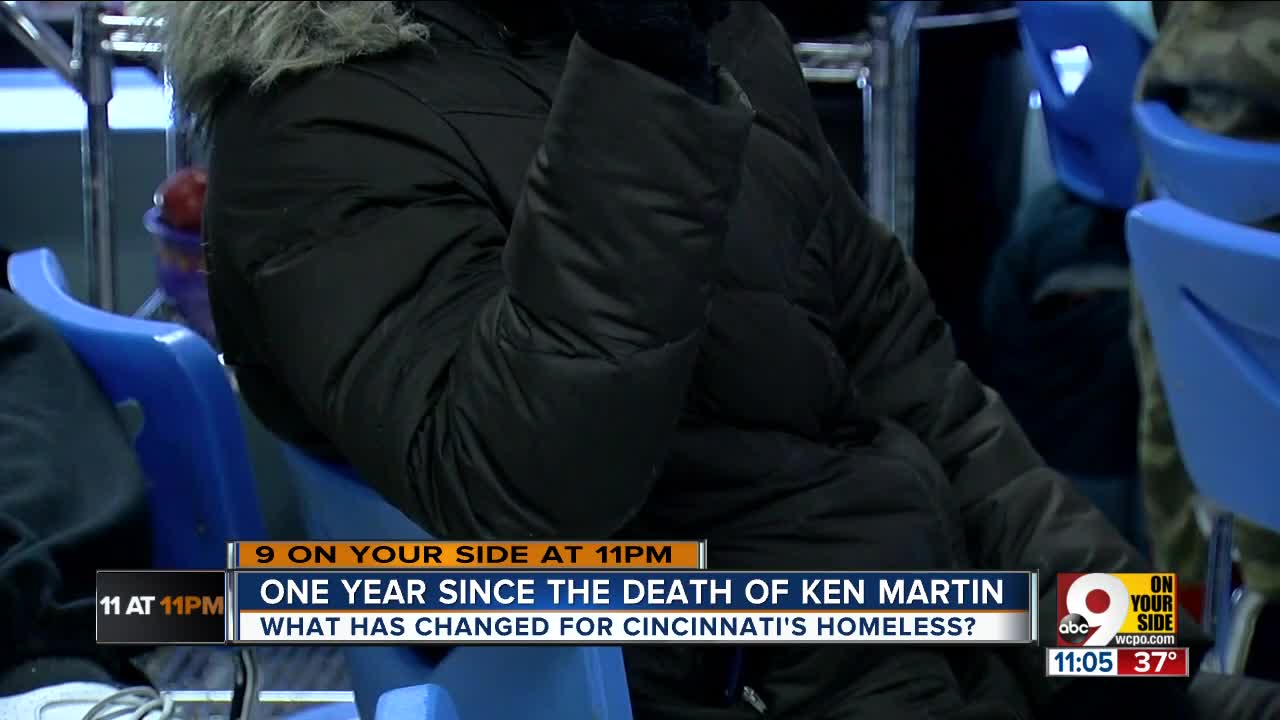CINCINNATI — It's been one year since Kenneth Martin was found frozen to death on a street in downtown Cincinnati.
Maslow's Army and other advocates have gathered together to honor Martin's memory, but one question still remains: has anything changed since then?
According to local shelters, more people are coming indoors this winter, but there are still empty beds to fill.
"I really don't like to go to shelters," said Richard Cowart, who is currently homeless. "A lot of people do, but I don't like to."
Cowart has been homeless for about six months. But even in winter, he prefers to go it alone.
"I've got a phobia, I think," he said. "I'm just scared of catching something, you know?"
He's not the only one who has this concern. Fear of illness, robbery, and past problems at shelters keep some on the streets even when there's room available indoors.
There were, in fact, dozens of beds available in shelters the night Ken Martin died, and advocates desperately want people to come inside.
"We have always, from mid-December through the end of February, we have always had empty beds in the winter shelter," said Kevin Finn, with Strategies to End Homelessness. "The real problem is getting people to understand that no matter what their experience is, they're welcome to come in."
Finn said even those who were kicked out for fighting or other bad behavior in the past are welcome this time of year. He adds that there's more community outreach to be done, but things are headed in the right direction. There's been a 42 percent decrease in the number of homeless people sleeping outside over the past five years - which could be the difference between life and death for some.
"We have had more people coming into shelters, but that's a good thing, because a homeless person is three times as likely to die on the streets as they are if they're residing in one of our shelters," said Finn.
How long the emergency shelter stays open during the winter is also dependent on how much money the shelter has to utilize. Donations can help the shelters stay open longer each day, and further into the winter.



